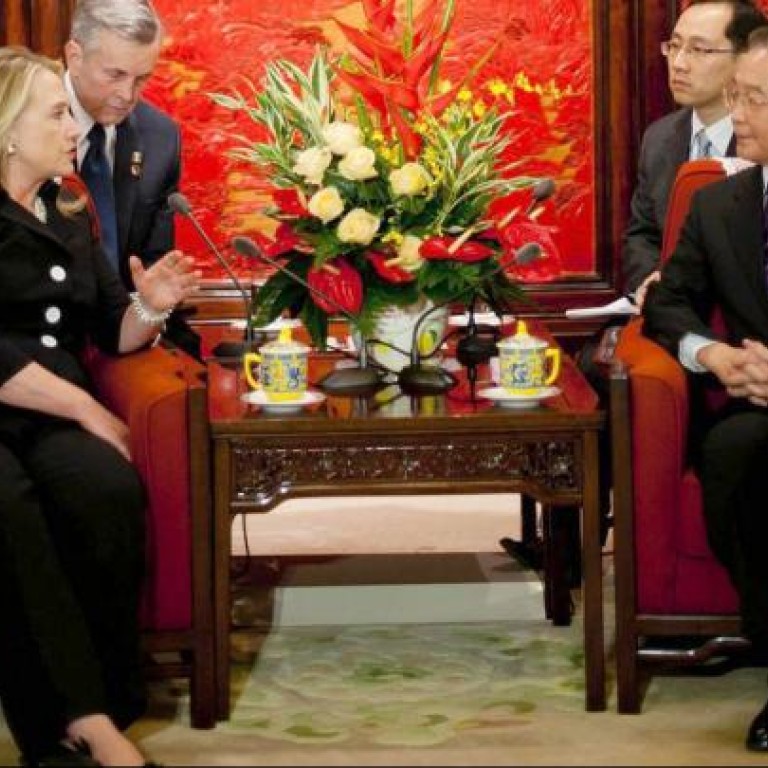
Wen and Clinton fail to narrow key differences on sea disputes, Syria
Premier warns US that involvement in China's territorial disputes could harm relations, and the two sides also fail to reach accord on Syria
Premier Wen Jiabao expressed concerns over the recent development of Sino-US ties yesterday in talks with US Secretary of State Hillary Rodham Clinton and warned that US involvement in territorial disputes between China and its neighbours could set back bilateral relations.
The unusually strongly worded warning came despite Clinton saying the United States welcomed a rising China.
After two days of talks, the two countries failed to bridge differences on how the violence in Syria should be ended and on resolving disputes in the South China Sea.
"Generally speaking, Sino-US ties are still proceeding. But I have had some worries recently," Wen said. "China and the US should maintain mutual political respect and mutual strategic trust. The US should respect China's sovereignty and territorial integrity, and take notice of China's core interests and public sentiment."
He said any setback in the bilateral relationship would have a significant global impact and warned that whether relations can "proactively step forward or dispiritedly step backward depends on the hard-working efforts of the two nations".
There is unease in Beijing over Washington's strengthening ties with other claimants in the oil-rich South China Sea, particularly Vietnam and the Philippines.
Professor Su Hao, from China Foreign Affairs University, said Beijing never used to show its frustrations "in such a straightforward way". "But Beijing finds the US moves in the Asia-Pacific region troublesome, and criticisms targeted at China during the US presidential election campaign have prompted Beijing to openly say that a souring of Sino-US ties will be harmful to both sides," Su said.
In talks yesterday, Clinton urged China to accept a multilateral approach to resolving the South China Sea disputes and to support plans to bring down Syrian President Bashar al-Assad, but she got lukewarm responses.
On the South China Sea, Clinton told reporters it was in "everyone's interest" that China and the Association of Southeast Asian Nations engaged in a diplomatic process towards a code of conduct before the East Asia Summit in November.
Foreign Minister Yang Jiechi reiterated that China only wanted to settle the disputes through bilateral negotiations with countries directly involved instead of raising them at the East Asia Summit, and gave no timeframe for the code of conduct.
On Syria, Clinton said "it is no secret" that Washington was disappointed by Russia and China's blocking of tougher UN Security Council resolutions against the Assad regime.
She said the US would "work with a growing group of like-minded nations to … plan for the day after Assad goes, because we are convinced that he will".
Yang said China supported a period of political transition in Syria, but stressed that solutions to the crisis should not be imposed from the outside.
But Clinton said in talks with President Hu Jintao that Sino-US ties remained strong.
"We are able to explore the areas of agreement and disagreement in a very open manner, which I think demonstrates the maturity of the relationship and the chance to take it further in the future," she said.
She said the US wanted China to play a greater role in world affairs, and to co-operate with Beijing to resolve the Iranian and North Korean nuclear problems.
Hu said China recognised Clinton's effort to promote bilateral ties. He also called on the US to relax controls on the export of hi-tech products to China.
Shi Yinhong, a US-affairs expert at Renmin University, said the talks revealed there were still significant differences between the two countries.

